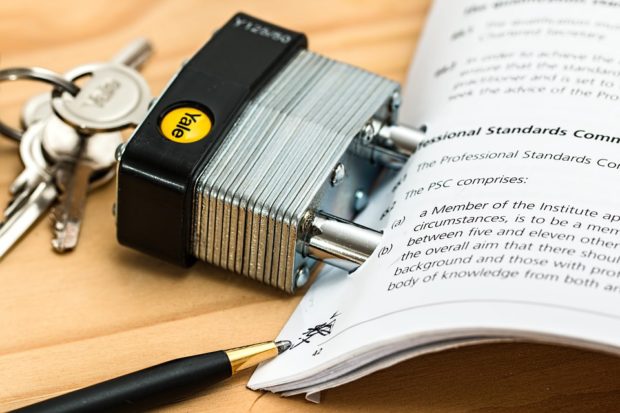Asking If Your Data Is Safe Is The Wrong Question – Here’s What You Should Ask Instead

With cloud-based data storage taking over the world, people want to know if their data is safe. Asking if your data is safe implies that it’s possible for data to be safe in an absolute manner – as if you can push a button or buy a security product that automatically makes your data safe. Unfortunately, data can never be 100% safe. The better question to ask is, “How can I protect my data to the best of my ability?”
The answer is to be diligent about what security measures you put in place, and how you manage your data. For example, if you collect customer information in a database, you may have purchased some kind of encrypted protection for that data. However, unless you understand how encryption works, you won’t be able to tell where your encryption falls short.
For example, say your data is encrypted while being stored on your hard drive or server. That’s important, but it’s not enough. Unless data is encrypted in transit, it’s at risk of being compromised. End-to-end encryption solves this dilemma and encrypts data while it’s moving from one source to another destination.
An increasing number of data breaches proves data isn’t safe
Businesses, government agencies, and other organizations experienced fewer than 200 data breaches in 2005. By 2017, that number topped 1,300, according to statistics reported by Market Watch.
Market Watch also quotes the Identity Theft Resource Center’s website to say, “It is the opinion of the ITRC that the criminal population is stealing more data from companies, AND data breaches are being more frequently publicized.”
So, while the numbers between 2005-2017 show a drastic increase in data breaches, it could be partly due to their wider publication. However, the fact that data breaches occur at all says one thing: data isn’t inherently safe.
VANs are a step in the right direction
A Virtual Account Number (VAN) is an account number generated by your bank that’s connected to your bank-issued account, but it’s designed to be used only once. It’s basically a disposable credit card number. You can designate the dollar amount it can be used for along with a date of expiration. This prevents your credit card number from sitting in a database for a long time where it’s vulnerable to data breaches. However, it’s not practical for purchases or situations where you might need to present your physical card, like hotel reservations or items you might need to return.
The existence of security measures doesn’t make data safe, either
Businesses have too much at stake to ignore the need to keep data secure. Risking the potential identity theft of their customers isn’t an option. Naturally, they’ll buy the security services presented to them as solutions to safeguard this data.
However, it’s a misconception that data is safe when security measures are in place. The truth is, security measures aren’t foolproof. Today’s top security measure will soon become yesterday’s easy hack. More than that, most data breaches aren’t the result of hacking, but negligence. Rather than hacking, many criminals only need to exploit oversights made by the business.
Data breaches have devastating consequences for everyone
The devastating effects of a data breach can hit businesses that had nothing to do with the data breach. For example, many criminals use stolen credit card information to make purchases, and when those charges are disputed, it results in a loss for the merchant.
As a merchant, the only way to avoid chargeback fees from the credit card company is to provide compelling information that proves the authorized cardholder made the transaction.
Such proof is virtually impossible to obtain when the transactions are the result of genuine credit card fraud. The unfortunate truth is that many merchants end up having to defend themselves legally to prove fraud was committed, and even when they win, they still have to pay court fees. It’s expensive to be the victim of fraud.
We haven’t seen the last of the data breaches
To help businesses prepare for these emerging threats, Experian has released their annual Data Breach Industry Forecast with five key predictions for 2018. “It’s critical that businesses learn what’s on the horizon and incorporate these threats into their incident response plans,” says Experian’s vice president Michael Bruemmer.
The potential for fraud is always lurking around the corner, and there’s no doubt we’ll continue to see more data breaches hit the news. Being diligent with your own data security measures reduces the potential for other businesses becoming the victim of fraudulent chargebacks.

